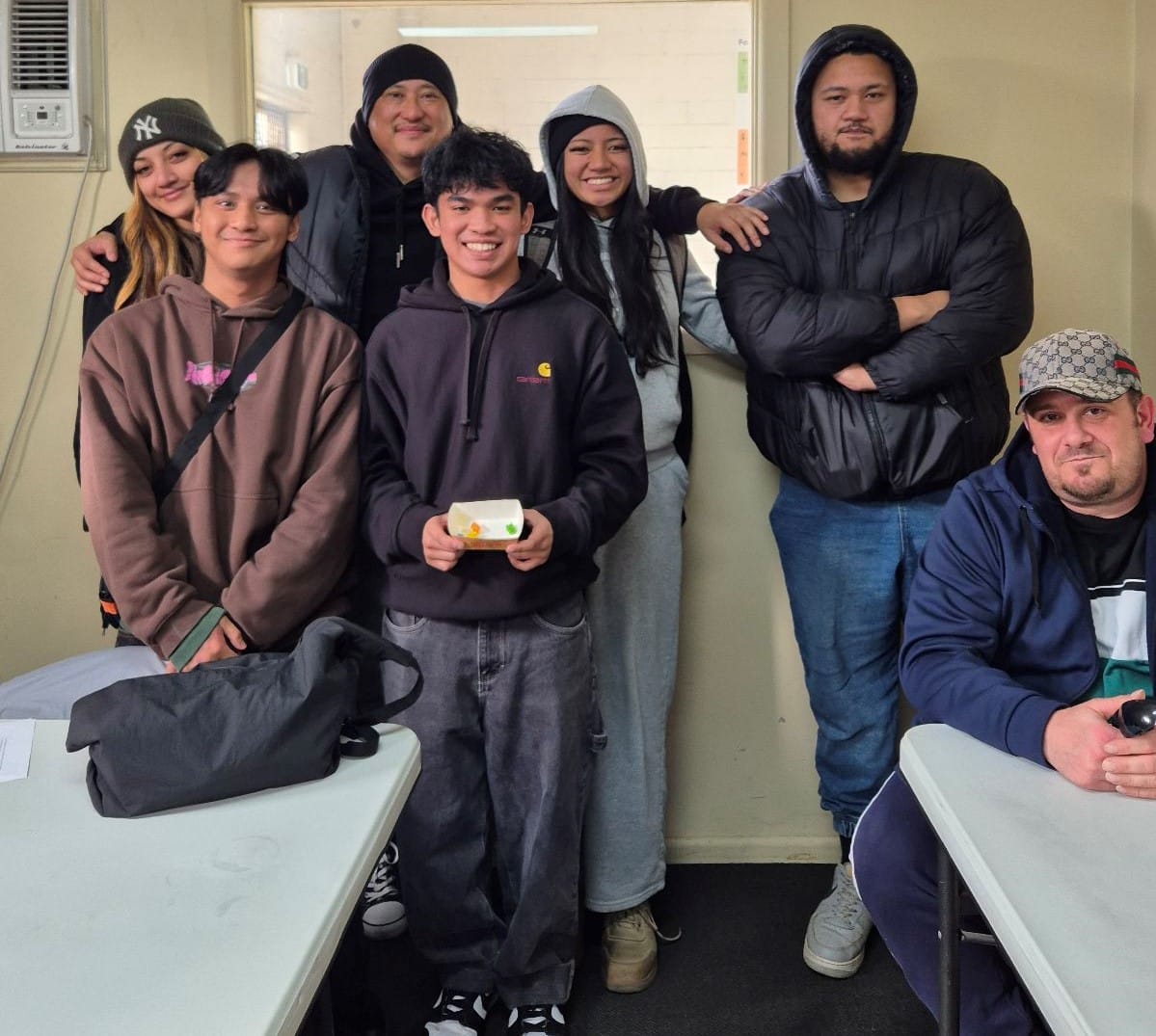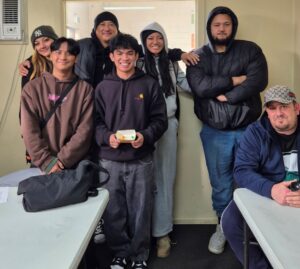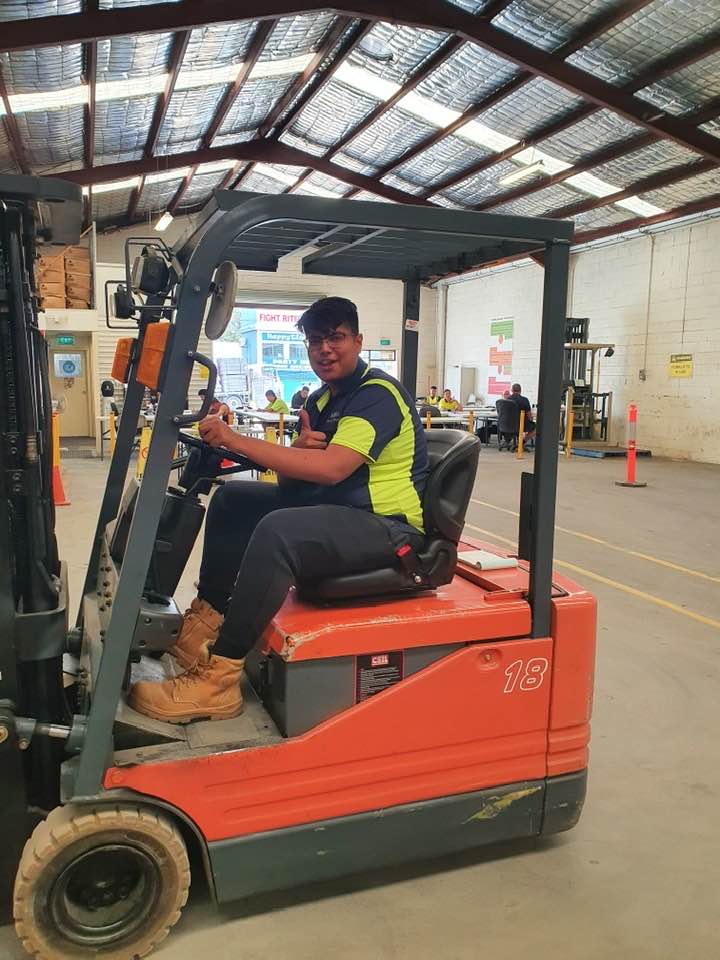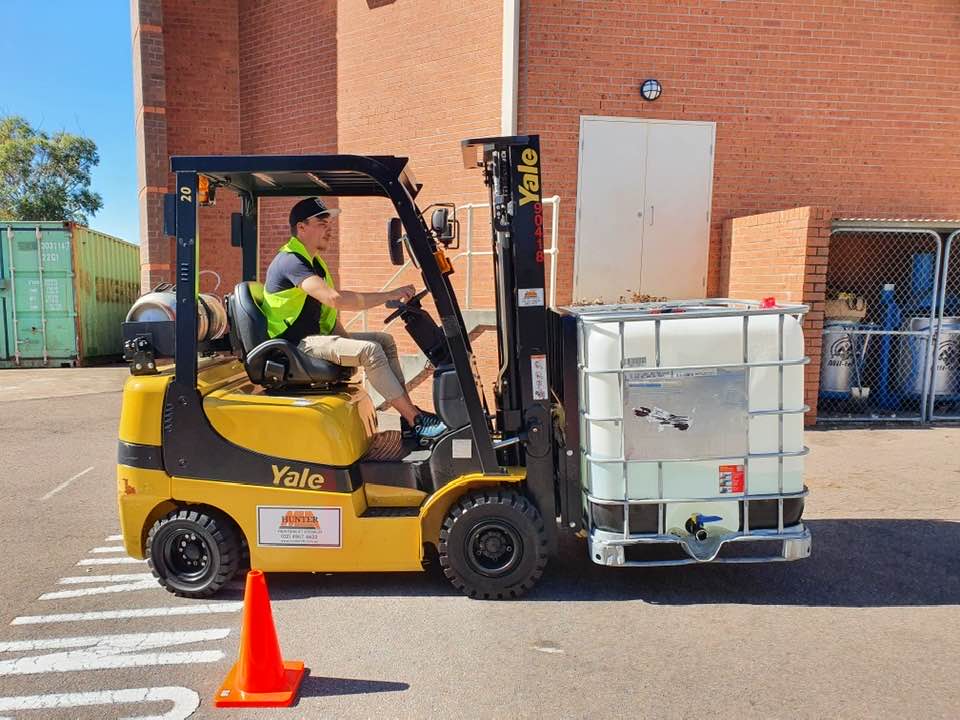
Can I Get a Forklift Licence Without a Job Offer?
Can I Get a Forklift Licence Without a Job Offer? Complete Guide 2025
The short answer is yes – you absolutely can get a forklift licence without having a job offer first. This is one of the most common questions from people considering a career in warehousing, logistics, or construction, and the misconception that you need employment first often holds back potential forklift operators from taking this important career step. Becoming a forklift driver is a desirable and accessible career, with opportunities available across NSW and beyond.
Book your forklift training at our Blacktown or Moorebank centre

In fact, getting your forklift licence before job hunting is not only possible but often the smarter strategy. Licensed forklift operators are in high demand across many industries, and having your certification ready makes you an immediately attractive candidate to employers who need skilled operators without the delay of training schedules. A career in forklift driving offers flexibility, competitive pay rates, and the chance to work in diverse sectors such as logistics, ports, and construction.
In this comprehensive guide, we’ll cover everything you need to know about getting your forklift licence independently, from the enrollment process to job opportunities that await qualified forklift operators. Can I Get a Forklift Licence Without a Job Offer? yes read more to understand how.
Introduction to Forklift Licences
Obtaining a forklift licence is a vital step for anyone looking to operate forklifts in industries such as warehousing, construction, and manufacturing. A forklift licence, officially known as a high risk work licence, is a legal requirement for anyone who wants to operate a forklift or similar materials handling equipment in Australia. The process begins with enrolling in a forklift training course provided by a registered training organisation (RTO). These courses are designed to equip future forklift operators with the theoretical knowledge and hands-on skills needed to operate forklifts safely and efficiently.
During the forklift training, you’ll learn about workplace safety, equipment maintenance, and operational procedures. The training course culminates in a practical assessment, where you must demonstrate your ability to operate a forklift in real-world scenarios. Successfully passing this assessment is essential to obtaining a valid forklift licence. With experienced forklift operators in high demand, holding a high risk work licence opens the door to numerous benefits, including improved job prospects, access to competitive salaries, and the ability to work in a variety of settings. Whether you’re new to the workforce or looking to upskill, completing forklift training is a smart investment in your future career.
Book your forklift training at our Blacktown or Moorebank centre
Can You Get a Forklift Licence Without a Job Offer?
Yes, you can absolutely get a forklift licence without having a job offer first. The forklift licensing process is regulated by safety authorities like SafeWork NSW, not by employers, which means no employer sponsorship or job guarantee is required to enroll in forklift training.
Most registered training organisations (RTOs) actively accept individual enrollments without any employment requirements. You can complete your TLILIC0003 (LF licence) or TLILIC0004 (LO licence) independently, paying for the training course yourself and obtaining certification that’s valid for five years across all Australian states and territories. The cost of forklift training courses in Australia generally ranges from $295 to $595.
We deliver training for the nationally recognised units:
TLILIC0003– Licence to operate a forklift truck
TLILIC0004– Licence to operate an order picking forklift truck
This independence in forklift training reflects the industry’s need for qualified forklift operators who can start work immediately. Getting licensed before job hunting actually demonstrates initiative and commitment to potential employers, making you stand out in a competitive job market.
The key regulatory framework supporting this approach ensures that forklift operation standards remain consistent regardless of how or when someone obtains their certification. National requirements set by federal authorities ensure consistent safety and compliance standards for forklift licensing across Australia. Whether you’re unemployed, changing careers, or simply looking to improve your job prospects, registered training organisations welcome individual students into their forklift training courses.
Why Getting Your Forklift Licence First Is Actually Better
Licensed forklift operators are strongly preferred by employers over unlicensed candidates, and there are compelling reasons why getting certified before your job search gives you a significant advantage.
Employers consistently prioritize candidates who already hold a valid forklift licence because they can start work immediately without waiting for training schedules or induction delays. This is particularly valuable in fast-paced industries like distribution centres, construction sites, and manufacturing facilities where operational demands don’t allow for extended training periods.
Having your licence demonstrates initiative and commitment to potential employers. It shows you’re serious about your forklift career and willing to invest in developing the necessary skills before seeking employment. This proactive approach often translates to better starting positions and competitive salaries ranging from $25-$45 per hour for standard operations.
Licensed operators also have significantly more job opportunities available to them. Many forklift jobs specifically require certification as a minimum qualification, meaning unlicensed candidates are automatically excluded from consideration. To secure a forklift job in logistics and supply chain operations, employers typically look for candidates who have completed accredited training programs and possess up-to-date safety knowledge, ensuring they are fully qualified for the demands of the role. With your licence ready, you can apply for positions across multiple sectors simultaneously, from warehousing and logistics to construction and manufacturing.
Perhaps most importantly, holding a licence gives you leverage to negotiate better starting wages. Experienced forklift operators with proper certification can command premium rates, especially in high-demand sectors like ports and mining operations where annual salaries can exceed $90,000. Can I Get a Forklift Licence Without a Job Offer? yes you certainly can.

How to Get Your Forklift Licence Without Employment
The process of obtaining your forklift licence independently is straightforward and designed to accommodate individual students. Here’s the step-by-step approach to complete training without needing employer sponsorship.
Start by choosing a reputable registered training organisation that offers nationally recognized forklift training courses. Look for RTOs that specifically mention accepting individual enrollments and ensure their courses include assessment by SafeWork NSW-accredited supervisors. The training typically takes 2 days for an LF licence (TLILIC0003 licence to operate a forklift truck), making it a relatively quick investment in your career prospects. Can I Get a Forklift Licence Without a Job Offer? yes you certainly can.
Before enrollment, confirm you meet the basic requirements: you must be at least 18 years old, possess valid photo ID, and demonstrate basic English literacy. No driver’s licence is required for forklift operation, though having one may be helpful for related job requirements.
Course fees typically range from $295-$595 depending on the licence type and training provider. This includes both theoretical training covering safety protocols, load calculations, and equipment maintenance, plus practical assessment sessions where you’ll demonstrate your ability to safely operate a forklift under supervision.
The theoretical knowledge component covers essential topics like occupational safety regulations, hazard identification, proper loading techniques, and equipment maintenance procedures. This foundation ensures you understand both the legal requirements and safety protocols essential for forklift operation.
During the practical assessment, you’ll work with different forklift types under the supervision of qualified assessors. This hands-on experience builds the skills needed to operate a forklift safely in real work environments, from basic maneuvering to complex loading and unloading tasks.
After successful completion of both theory and practical components, you’ll receive a certificate of attainment. In Australia, you must then submit this certificate to SafeWork NSW within 60 days to receive your official high risk work licence, which serves as your official licence to operate forklifts nationwide. This step is necessary to legally operate a forklift in Australia, as holding a valid high risk work licence confirms you have met all legal and safety requirements. All High-Risk Work Licenses, including forklift licenses, are valid for five years in Australia. Can I Get a Forklift Licence Without a Job Offer? yes, read on to see all forklift licence types.
Forklift Licence Types Available for Individual Students
Individual students can choose from several forklift licence types depending on their career goals and the types of equipment they want to operate. Understanding these options helps you select the right training course for your needs.
The LF forklift licence (TLILIC0003) is the most comprehensive option, allowing you to operate counterbalance forklifts, reach trucks, and all-terrain forklifts. To obtain this licence, you must complete an LF course—a specialized forklift training program that covers safety assessment, material transport, load stability, and practical skill development. This licence covers standard counterbalance forklift trucks commonly found in warehouses and distribution centres, as well as specialized equipment like high reach forklifts used in tall storage facilities.
For those interested in order picking operations, the LO forklift licence (TLILIC0004) specifically covers order picking forklift trucks that operate up to 10 metres high. The LO license is essential for roles in large distribution centres where workers need to operate an order picking forklift truck to retrieve items from elevated storage locations.
Many training providers offer combo courses that include both LF and LO licences, typically completed over 4 days. These combo programs often provide better value than taking separate courses, with potential savings of up to $194 compared to individual licence fees.
The choice between licence types should align with your target job opportunities. If you’re planning to work in general warehousing or construction, the LF forklift licence provides the broadest range of employment options. For specialized roles in large-scale distribution or e-commerce fulfillment, combining both licences maximizes your job prospects and earning potential.
All forklift licences issued through proper training channels are valid for five years and recognized across all Australian states and territories, giving you maximum flexibility in your job search and career progression.
Forklift Licence Application Process
The application process for a forklift licence is straightforward but requires careful attention to each step. First, you must enroll in a forklift training course with a registered training organisation. These RTOs provide comprehensive training that covers both the theoretical and practical aspects of forklift operation. After completing the training course, you’ll need to pass both a written and a practical assessment to demonstrate your understanding of safety protocols and your ability to operate a forklift safely.
Once you have successfully completed the assessments, the registered training organisation will issue you a notice of assessment and provide the necessary application form. You’ll then submit your application, along with proof of identity and any required documentation, to the relevant state or territory authority. It’s important to ensure that your training course is conducted by a reputable RTO, as this guarantees your forklift licence will be recognised nationally. By following these steps, you’ll be well on your way to obtaining a forklift licence that allows you to operate forklifts legally and confidently in a range of industries.
Job Opportunities After Getting Licensed
The job market for qualified forklift operators is robust and diverse, with opportunities spanning multiple industries that rely on material handling and logistics operations.
Warehousing and distribution centres represent the largest employment sector for forklift drivers, with major retailers, logistics companies, and e-commerce operations consistently seeking skilled operators. In the warehousing industry, forklift training and certification are essential qualifications for career advancement, as employers prioritize candidates with up-to-date credentials. These environments typically offer flexible shift options, from standard day shifts to higher-paying night and weekend positions.
Construction sites require forklift operators for material handling, equipment positioning, and site logistics. Construction forklift jobs often pay premium rates due to the specialized nature of the work environment and the need for operators who can work safely around other heavy machinery and trades workers.
Manufacturing facilities across industries from automotive to food processing need forklift operators to support production lines, manage raw materials, and handle finished goods. These positions often provide stable, long-term employment with opportunities for skill development and career progression within larger organizations.
The port and freight industry offers some of the highest-paying forklift positions, with experienced operators in major ports earning $90,000+ annually. These roles typically involve handling shipping containers and require additional certifications, but provide excellent career advancement opportunities.
Recent data shows that 1,538 forklift-related incidents were reported in New South Wales alone between 2017-2022, highlighting the critical importance of properly trained operators and the ongoing high demand for qualified professionals who prioritize safety in their forklift operation practices.
Many industries also offer part-time and casual positions, providing flexibility for operators who want to work multiple sites or maintain work-life balance while building experience across different work environments. Can I Get a Forklift Licence Without a Job Offer? 100% yes.
Training Providers That Accept Individual Enrollments
Most registered training organisations actively welcome individual students without requiring job offers or employer sponsorship, recognizing that many people pursue forklift training to improve their employment prospects.
When selecting a training provider, verify that their courses include supervision by WorkSafe-accredited assessors during practical sessions. This ensures your certification will be recognized by employers and regulatory authorities nationwide. Quality training providers typically maintain strong relationships with local employers and may offer job placement assistance after course completion.
Reputable RTOs often provide additional services beyond basic certification, including interview coaching, resume guidance, and ongoing support for recent graduates. Some larger training centres maintain databases of employers actively seeking qualified operators, potentially connecting you with job opportunities immediately after certification.
Compare course offerings carefully, as providers may include different services in their packages. Some include personal protective equipment (PPE) rental, while others require you to bring your own high-visibility clothing and safety footwear. Course duration can also vary, with some intensive programs completing LF certification in as little as 2 days.
Look for training providers that offer flexible scheduling options, including weekend and evening classes to accommodate different personal schedules. This flexibility is particularly important for individual students who may be balancing training with existing commitments or job searching activities.
The best training providers maintain transparent pricing structures and clearly outline what’s included in course fees, from assessment costs to any additional materials or equipment usage charges. Can I Get a Forklift Licence Without a Job Offer? 100% yes.
What You Need to Enroll in Forklift Training
Enrolling in forklift training as an individual student requires meeting several basic prerequisites, but the requirements are designed to be accessible to most people interested in pursuing this career path.
You must be at least 18 years old, as enforced by SafeWork Australia regulations for high risk work operations. This age requirement reflects the serious safety responsibilities involved in operating heavy machinery in industrial environments.
Two forms of identification are required, including at least one photo ID for official account creation and record-keeping purposes. This typically means bringing a driver’s licence or passport along with another form of identification like a birth certificate or Medicare card.
| Requirement | Details |
|---|---|
| Minimum Age | 18 years (SafeWork NSW regulation) |
| Identification | Two forms including one photo ID |
| English Skills | Basic reading and writing (no interpreters allowed) |
| PPE Equipment | Hi-vis clothing and closed-in safety shoes |
| Course Fees | $295-595 depending on licence type |
Basic English literacy is mandatory for both safety reasons and successful completion of theory components. Training providers cannot allow interpreters during assessments, so you must be able to read safety instructions, understand operational procedures, and complete written evaluations independently. Tests for the forklift training course must be conducted in English, ensuring all operators meet the required language proficiency for safe operation.
Personal protective equipment requirements include high-visibility clothing and closed-in safety footwear. Some training providers include PPE rental in their course fees, while others require students to bring their own equipment. Check with your chosen RTO about what’s provided versus what you need to supply.
Most training organisations assign pre-course materials or online modules to complete before attending practical sessions. This preparation ensures all students arrive with basic theoretical knowledge, maximizing the effectiveness of hands-on training time.
Physical and Mental Requirements
Operating a forklift safely requires both physical capability and mental alertness, as operators must consistently follow complex safety protocols while maneuvering heavy loads in potentially hazardous environments.
Good hand-eye coordination and spatial awareness are essential for safely navigating tight spaces, accurately positioning loads, and avoiding obstacles or other workers. These skills are particularly important when operating in busy distribution centres or construction sites where multiple activities occur simultaneously.
The physical demands include the ability to climb in and out of forklift trucks multiple times per shift, maintain alertness during extended periods of operation, and potentially assist with manual handling tasks as part of broader job responsibilities.
Mental focus and attention to detail are critical, as human error is a leading cause of forklift-related incidents. Operators must remain alert to changing conditions, follow established safety procedures, and make quick decisions to prevent accidents or equipment damage.
Cost Considerations for Self-Funded Training
Understanding the financial investment required for independent forklift training helps you plan your career transition and evaluate the return on your certification investment.
LF licence courses typically cost between $295-$595 at most registered training organisations, while LO licence training ranges from $375-595. These fees generally include all assessment costs, theory materials, and equipment usage during practical training sessions.
Combined LF and LO courses offer significant savings, starting around $580 for both licences. This represents potential savings of up to $194 compared to taking separate courses, making combo training an attractive option for students planning to work in diverse environments requiring multiple forklift types.
Additional costs may include personal protective equipment if not provided by the training centre, travel expenses to reach training locations, and potentially accommodation for regional students attending courses in major cities. Factor these expenses into your total training budget.
The investment typically pays for itself quickly given the earning potential of qualified forklift operators. With average annual salaries around $64,202 and hourly rates ranging from $25-$45, most operators recover their training costs within weeks or months of starting employment.
Consider the long-term value as well – forklift licences remain valid for five years and provide access to job opportunities across multiple industries, making the initial investment a foundation for sustained career growth in warehousing sectors and beyond.
Industries That Require a Forklift Licence
A forklift licence is a key requirement in a wide range of industries where the safe and efficient movement of goods is essential. Warehousing and distribution centres are among the largest employers of forklift operators, with warehouse managers relying on skilled operators to keep operations running smoothly. In these environments, a valid forklift licence is often a prerequisite for employment and is crucial for career progression. Forklift operators are in high demand across Australia due to the essential nature of forklifts in many industries.
Construction sites also require licensed forklift operators to handle materials and support site logistics, while manufacturing facilities depend on qualified staff to move raw materials and finished products. Completing a forklift training course and obtaining your forklift licence ensures you have the necessary skills to operate forklifts safely, making you a valuable asset in these high-demand sectors. Whether you’re aiming to work in logistics, construction, or manufacturing, holding a forklift licence opens up a variety of job opportunities and supports your long-term career growth.
Forklift Licence Recognition
One of the major advantages of obtaining a forklift licence in Australia is its national recognition. Once you have a valid forklift licence, you are authorised to operate forklifts across all states and territories, making it easier to pursue job opportunities wherever they arise. The licence is typically valid for five years, after which it must be renewed to ensure your skills and knowledge remain current.
This national recognition streamlines the process for both operators and employers, allowing for greater flexibility and mobility within the workforce. Whether you’re moving between cities or working for companies with multiple locations, your forklift licence remains valid and respected. The requirement for a practical assessment and adherence to national standards ensures that all forklift operators meet consistent safety and competency benchmarks, supporting the safe and efficient movement of goods throughout Australia.
Forklift Licence Renewal
Renewing your forklift licence is essential to maintaining your legal ability to operate forklifts and to demonstrate your ongoing commitment to workplace safety. The renewal process generally involves completing a refresher forklift training course, which updates you on the latest safety procedures, operational techniques, and industry best practices. You’ll also need to pass a practical assessment to confirm your continued competency in forklift operation.
Upon successful completion of the refresher course and assessment, your forklift licence will be renewed for another five years. It’s important to renew your licence before it expires to avoid the need to repeat the full forklift training course. Keeping your forklift licence current not only ensures you retain the necessary skills to operate forklifts safely but also signals to employers that you are a responsible and up-to-date operator, ready to contribute to a safe and efficient workplace.
Alternative Pathways to Employment
While self-funded training offers the most flexibility and immediate job market access, several alternative pathways can help you obtain forklift certification through different arrangements.
Some employers incorporate forklift training into broader apprenticeship programs, particularly for younger job seekers entering warehousing or logistics as a long-term career. These programs typically combine certification with broader skill development but may require commitments to remain with the sponsoring employer for specific periods.
Labour hire agencies occasionally sponsor forklift training for promising candidates as part of expanding their contingent workforce capabilities. This arrangement can provide immediate employment opportunities but may limit your flexibility to choose specific employers or negotiate starting wages independently.
Government workforce development initiatives sometimes include forklift certification as part of broader job readiness programs for unemployed or disadvantaged job seekers. These subsidized programs can significantly reduce or eliminate training costs but often involve competitive entry processes and waiting periods.
While these alternative pathways can provide valuable opportunities, self-funded training typically offers several advantages: immediate access to training without waiting periods, complete flexibility in choosing employers after certification, and no obligations to specific companies or long-term employment commitments.
The choice between self-funding and alternative pathways depends on your personal circumstances, timeline for career transition, and preferences for employment flexibility versus structured support programs.
Maximizing Your Employment Success After Certification
Once you’ve obtained your forklift licence independently, several strategies can help you leverage your new skills into successful employment outcomes and long-term career growth.
Start applying for positions immediately after receiving your certification, as many employers prefer candidates who can begin work without training delays. Focus your job search on industries with consistent demand for qualified operators, including major distribution centres, manufacturing facilities, and construction companies in your area.
Highlight your proactive approach to certification in job applications and interviews. Employers value candidates who take initiative to develop necessary skills before seeking employment, as this demonstrates reliability and commitment to professional development.
Consider starting with entry-level positions to gain practical experience, even if initial wages are modest. Experienced forklift operators with proven safety records can quickly advance to higher-paying roles or specialized positions requiring additional skills and certifications.
Network within the industry by connecting with other operators, supervisors, and warehouse managers. Many job opportunities in this field come through word-of-mouth recommendations, particularly for operators with strong safety records and reliable work habits.
Continue developing your skills through additional training opportunities, such as specialized equipment certifications or safety leadership programs. This ongoing skill development positions you for career progression and access to higher-paying positions in competitive markets. Can I Get a Forklift Licence Without a Job Offer? yes, in fact, it may help you land that job.
Can I Get a Forklift Licence Without a Job Offer? Book a Standard (beginner) Forklift Course at Moorebank or Blacktown today!
Conclusion
Can I Get a Forklift Licence Without a Job Offer? Getting a forklift licence without a job offer isn’t just possible – it’s often the smartest career move you can make. Independent certification demonstrates initiative, provides immediate access to job opportunities, and positions you as a preferred candidate in a market with consistently high demand for qualified operators.
The process is straightforward, accessible, and designed to accommodate individual students pursuing career advancement. With training courses available nationwide, reasonable costs that quickly pay for themselves, and certification valid across all states and territories, there’s never been a better time to invest in your forklift career.
Whether you’re changing careers, re-entering the workforce, or simply looking to improve your employment prospects, forklift licensing offers a solid foundation for stable, well-paying work across multiple industries. The combination of job security, competitive wages, and diverse employment opportunities makes forklift operation an attractive career path for many people.
Don’t let misconceptions about employment requirements delay your career progress. Research registered training organisations in your area, compare course offerings and prices, and take the first step toward becoming a qualified forklift operator. Your future employers are waiting for skilled, safety-conscious operators who are ready to contribute from day one. Can I Get a Forklift Licence Without a Job Offer? Yes you can.
Can You Fail a Forklift Licence?
How long does it take to get a forklift license in Australia?


